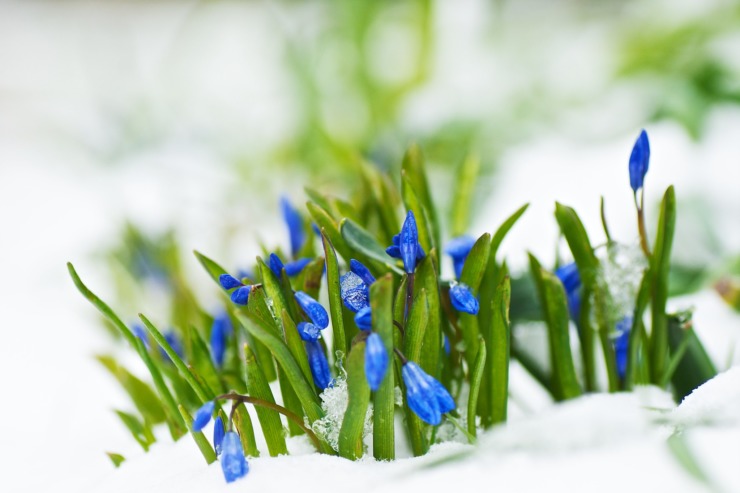Winter is for Women. And Sylvia Plath.
I knew I probably would not fully memorize Sylvia Plath’s Wintering By Heart, and I didn’t. The poem is too long, and February is too short. But it’s the poem that gave the title to Katherine May’s Wintering, which we’ve been reading as a book club with our Patreon partners. The chapter in which the poem appears is called “Survival,” perhaps because Plath didn’t. I owed her my month.
Plath is a poet I’ve avoided, afraid of what I might read. I lean rather melancholy — would reading her make me even more sad? Then again, she’s one of Tweetspeak’s Take Your Poet to Work poets.
But what ultimately convinced me to learn the poem was watching the TV series Dickinson, inspired by the life of Emily Dickinson. The Future never spoke is a bonkers time-travel episode, in which Emily and her sister, Vinnie, visit the future and meet Sylvia Plath, who tells Dickinson about her legacy. The good news? Dickinson is a published poet! In hardcover! The bad news? History has misjudged her, reducing her to a depressed recluse in white.
The brilliance of the episode is that it invites us to consider how Plath herself has been misjudged. What do most people know about Plath? She wrote poems, married fellow poet Ted Hughes, and died by suicide. We don’t know she was “hanging on for the bees.” We don’t know about her honey, “Six jars of it.” What else don’t we know?
The “Wintering” poem tells us where Plath keeps her honey — “in the wine cellar.” She’s not keeping wine there. She’s not keeping “rancid jam” or “Sir So-and-so’s gin.” She has honey, “Six cat’s eyes.” That’s a lot of sweetness, a lot of warm light.
If this were the only poem Plath left us, I’d guess she was doing okay, overall. She is in her season — “Winter is for women” — and she seems to be wintering well. I would think that like the female bees in the poem, she had “got rid of the men” and was free to spread her white smile wide, across the snow. Sure, the cellar is there, and it’s a difficult room for her to breathe in, but she’s still breathing. If she can take it easy just a little longer, she will “taste the spring.”
I need more time with this poem, so I’ve recorded myself reading it aloud. As I return to it periodically, as I do all my By Heart poems, I trust it will continue to make its own honey. Already it is the Tate and Lyle that has kept me going, while I await the flowers.
By Heart for March
After tackling a long poem in February, we’ll learn a short one in March, one that is all about spring — I So Liked Spring by Charlotte Mew. Please join us!
I So Liked Spring
I so liked Spring last year
Because you were here; –
The thrushes too –
Because it was these you so liked to hear –
I so liked you.
This year’s a different thing, –
I’ll not think of you.
But I’ll like the Spring because it is simply Spring
As the thrushes do.
–Charlotte Mew
Photo by Nana B Agyei, Creative Commons, via Flickr. Post by Megan Willome.
Browse more By Heart
I loved this book. As soon as I finished, I began reading it again.”
—David Lee Garrison, author of Playing Bach in the D. C. Metro
- Perspective: The Two, The Only: Calvin and Hobbes - December 16, 2022
- Children’s Book Club: A Very Haunted Christmas - December 9, 2022
- By Heart: ‘The night is darkening round me’ by Emily Brontë - December 2, 2022


Callie Feyen says
Indeed, it is just bad news that she’s been judged as a “depressed recluse in white.” I’m grateful for the TV show that shows us a Dickinson that makes me feel so very OK with who I am and how I walk in this world.
I’ll be turning over, “winter is for women” for a while now. Thank you.
Megan Willome says
Callie, it’s worth turning over for many a long winter’s night.
And yes, I also found the “Dickinson” series inspirational in just the way you describe.